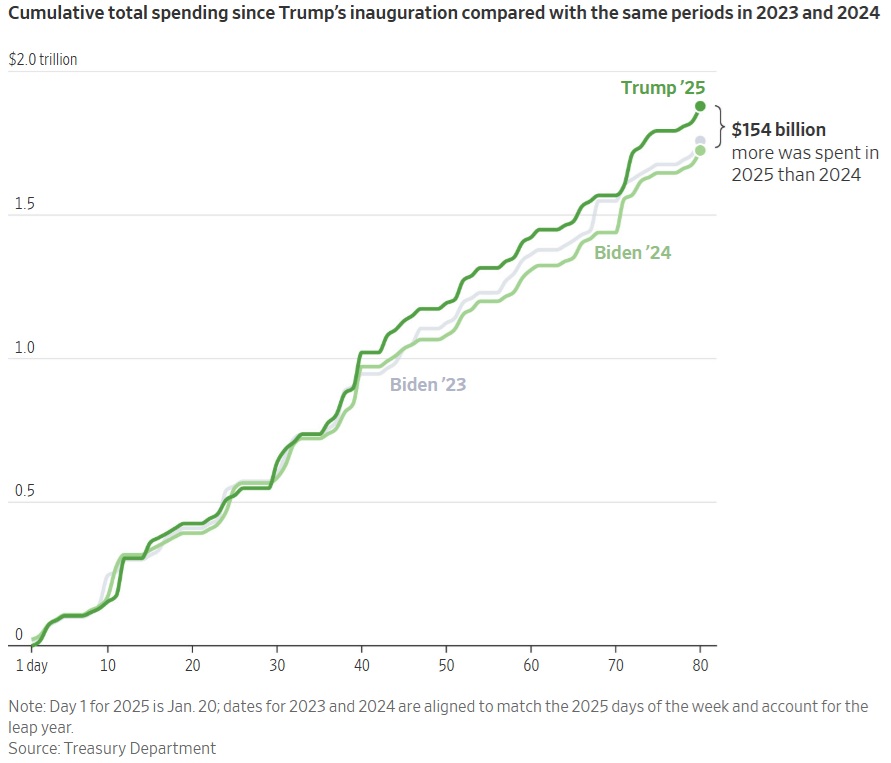I’m a fan of Elon Musk’s Department of Government Efficiency (DOGE) because we desperately need spending restraint.
I’ve even offered a few suggestions of how to save money.
Time will tell whether DOGE follows my specific advice, but Musk and his team definitely haven’t been slackers. They’ve gone into various agencies to fire bureaucrats, cancel contracts, and expose waste.
But there’s one thing DOGE has not accomplished. It hasn’t reduced the federal budget by a single penny.
Here’s a chart from the Wall Street Journal showing spending since Trump was inaugurated compared to spending for similar days during Biden’s final two years.

Not very encouraging, to put it mildly.
That being said, Elon Musk and his team have great goals. They want to save trillions of dollars for taxpayers, and DOGE proponents assert that the steps taken so far will save $150 billion.
But here are three things to understand.
- The executive branch has some leeway over how to spend money, but overall spending levels are determined by appropriations laws and entitlement programs enacted by Congress and signed by presidents.
- Trump and Congress can reduce spending for the current fiscal year by enacting a rescission package to lower existing appropriations and/or by reforming entitlements. But there has been no effort to achieve either of those goals.
- Trump and Congress can reduce spending next fiscal year and beyond by lowering future appropriations levels and/or reforming entitlements. Based on the budget resolution moving through Congress, those goals seem out of reach.
This is depressing analysis, but it is also cold, hard truth.
I’ll close with an example. DOGE has gone after both the U.S. Agency for International Development and the U.S. Department of Education.
Given the failure of foreign aid and the federal government’s awful track record on education, those two bureaucracies are excellent targets. And the White House and DOGE have made substantial changes.
But the key question is whether those changes will translate into actual savings for taxpayers. I hope I’m wrong, but I don’t think there is much evidence to suggest that the overall burden of government spending will decline (or even to increase at a slower rate).

